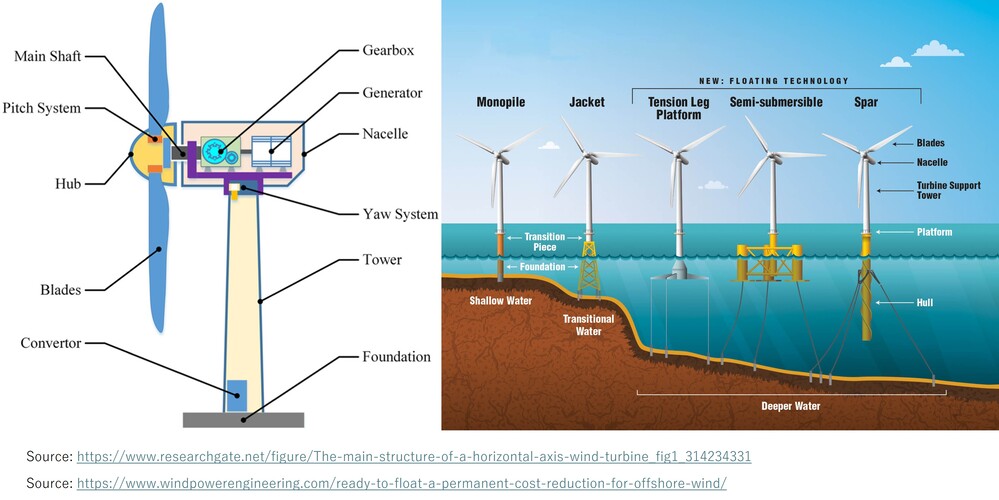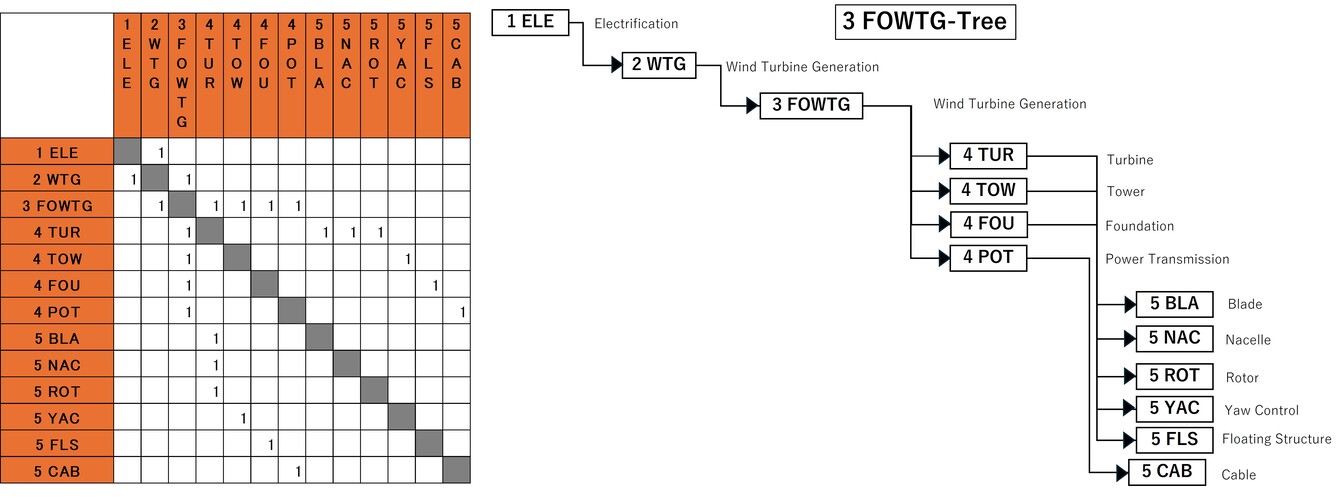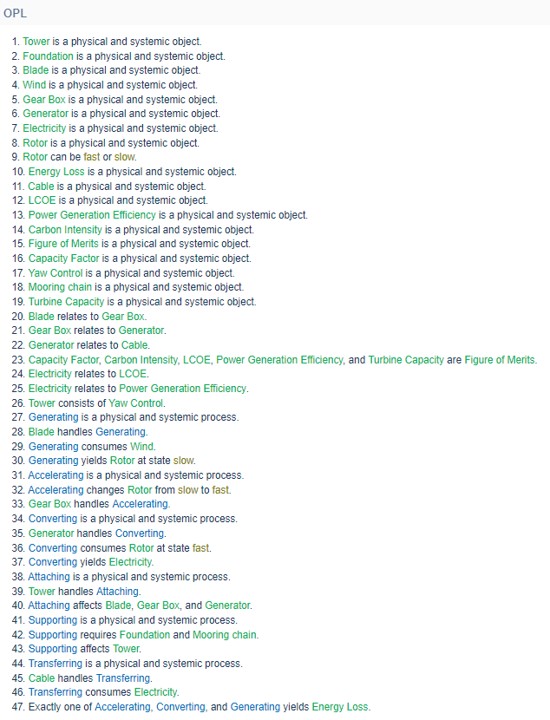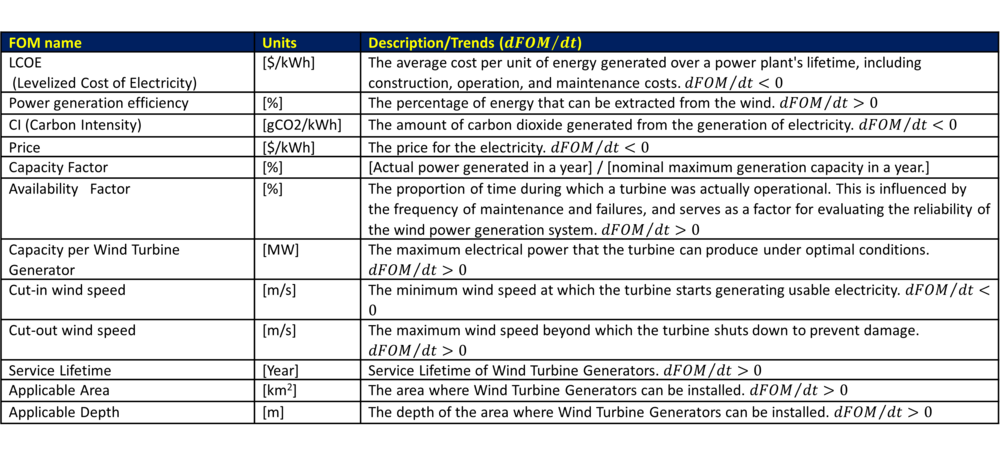Difference between revisions of "Floating Offshore Wind Turbine Generator"
| Line 39: | Line 39: | ||
The table below shows an example of a key governing equation governing wind turbine generators. | The table below shows an example of a key governing equation governing wind turbine generators. | ||
[[File:3FOWTG_Section4-2.jpg]] | [[File:3FOWTG_Section4-2.jpg|1200px]] | ||
Revision as of 17:19, 10 October 2024
Technology Roadmap Sections and Deliverables
Team 20 is to present a "level 3” roadmap of Floating Offshore Wind Turbine Generators. The following code is the identifier.
- 3FOWTG - Floating Offshore Wind Turbine Generator
Roadmap Overview
Floating Offshore Wind Turbine Generators are a technology that generates electricity by converting wind energy using turbines mounted on floating structures, which are moored to the seabed and remain stable at sea or on lakes. This technology is a form of offshore wind power, and compared to fixed systems, Floating Offshore Wind Turbine Generators can be installed in deeper waters or in coastal areas with limited space.
As the global shift toward renewable energy accelerates, wind power plays a central role. As of 2022, global wind power capacity has reached 906 GW, but the vast majority of this is onshore wind power, with offshore wind accounting for only 7.1%. Offshore wind power is divided into two types: "fixed" and "floating." This roadmap focuses on the latter, which is still in its early stages of development.
Fixed wind power involves anchoring the turbine to the seabed, usually in shallow waters up to 50 meters deep, and is a relatively mature technology. In contrast, Floating Offshore Wind Turbine Generators, which are suited for deep-water areas or countries with limited coastal space such as Japan, the U.S. West Coast, and Norway, face fewer restrictions on installation locations. However, challenges remain in terms of stability at sea, transporting electricity to land, and reducing costs. Currently, floating systems are approximately twice as expensive as fixed systems, and large-scale commercialization is expected to take time. Nevertheless, as technology advances, the adoption of Floating Offshore Wind Turbine Generators is anticipated to increase significantly in the future.
Design Structure Matrix (DSM) Allocation
The 3FOWTG tree that we can extract from the DSM above shows us that the Floating Offshore Wind Turbine Generator (3FOWTG) is part of a larger industry-wide initiative on "Wind Turbine Generation" (2WTG), included in a type of electrification, and that it requires the following key enabling technologies at the subsystem level: 4TUR Turbine, 4TOW Tower, 4FOU Foundation, and 4POT Power Transmission. In turn, these require enabling technologies at level 5: 5BLA Blade, 5NAC Nacelle, 5ROT Rotor, 5YAC Yaw Control, 5FLS Floating Structure (such as the structure of spar and semi-submersible), and 5CAB Cable.
Roadmap Model using OPM
Team 20 hereby displays OPD of 3FOWTG – Floating Offshore Wind Turbine Generator (WTG) This consists of level 3 decomposed WTG, associated products and figure of merit (FOM). Associated OPL is displayed below. This represents the relationships among each object shown in the OPM above.
Figures of Merit
The table below is to show a list of FOMs of 3FOWTG.
Besides defining what the FOMs are, this section of the roadmap should also contain the FOM trends over time dFOM/dt as well as some of the key governing equations that underpin the technology. Each trend over time dFOM/dt is included in the table above.
The table below shows an example of a key governing equation governing wind turbine generators.





